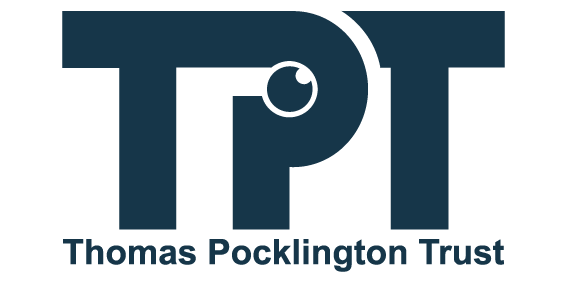Ines Higgins, a Team Administrator at Forwards Employment Service, a division of Gloucestershire County Council, is making a significant impact by helping disabled individuals find employment. In this spotlight, Ines shares her journey into the workforce and highlights the role her supportive employer has played in her success
“Not an easy journey”
Ines, aged 33, has an eye condition called Optic Nerve Atrophy. She is passionate about running, volunteers at her local church, and dedicates her time to the Gloucestershire Sight Loss Council.
Despite her out-going personality and can-do attitude, Ines struggled for many years to find employment. She describes her path to employment as far from easy. Even with qualifications in administration and an apprenticeship with EDF Energy, she still faced numerous rejections due to a perceived lack of experience.
It became a frustrating cycle: Ines needed experience to secure a job, but employers were hesitant to provide her with the opportunities she needed. Her turning point came when she learned about the ‘Going the Extra Mile’ project in Gloucestershire.
Ines explained: “They help people facing employment barriers and supported me for two years until I finally got my job with Forwards.”
Starting work
From the outset, Ines recognised her employer’s commitment to tailoring her role to her strengths and teaching her new skills. She received job coaching and was encouraged to pursue a Level 3 apprenticeship in Business Administration. It didn’t take long for her to be promoted to Team Administrator.
She said: “I call customers who have a work placement through our service to see if they’re happy with their work or if they need any extra support such as job coaching. I also have to do a lot of meeting minutes, which I actually enjoy.”
A supportive employer
Ines is grateful for her employer’s and colleagues’ unwavering support and their willingness to meet her accessibility needs. She explained: “For example, they type up scanned-in customer profiles so my screen reader can read them.
Before Ines joined, none of her colleagues had experience working with someone with a visual impairment. Her willingness to discuss her disability and answer questions helped build strong relationships.
She added, “Effective communication is the most important thing. If you communicate with your manager, then you can work together on solutions on any problems you may have.”
Technology in the workplace
Ines relies on assistive technology in her work, including the screen reader JAWS and a Braille note taker—a digital PDA with a Braille screen for notetaking during meetings. These tools were funded through the Access to Work programme, a government initiative that covers the costs of equipment, support workers, and travel expenses for individuals with disabilities.
Looking ahead, Ines plans to complete her apprenticeship and further develop her role. In the long term, she aspires to pursue public speaking or a career in life coaching.
Speaking directly to visually impaired people struggling to find work Ines said: “Don’t give up! Keep looking and when you have an employer that is interested, be open with them and communicate. Also be flexible and willing to try something new.”



